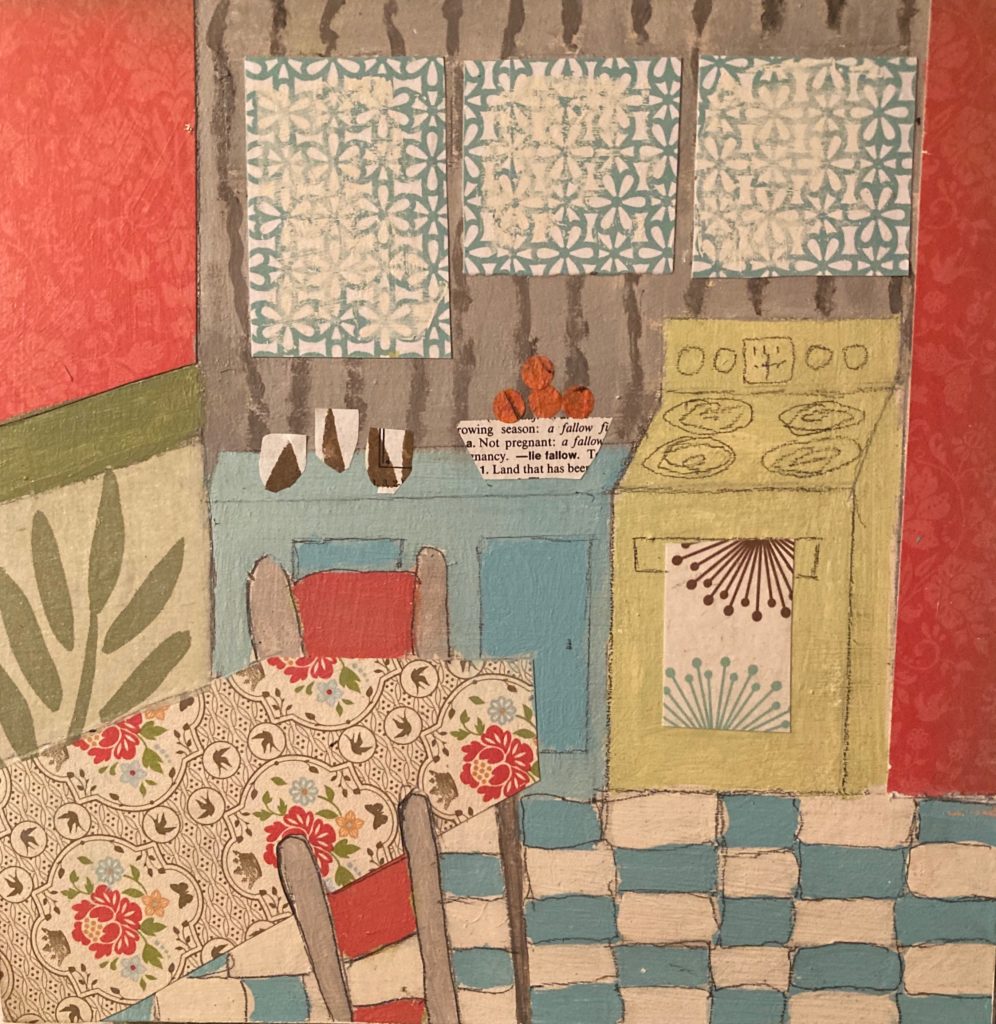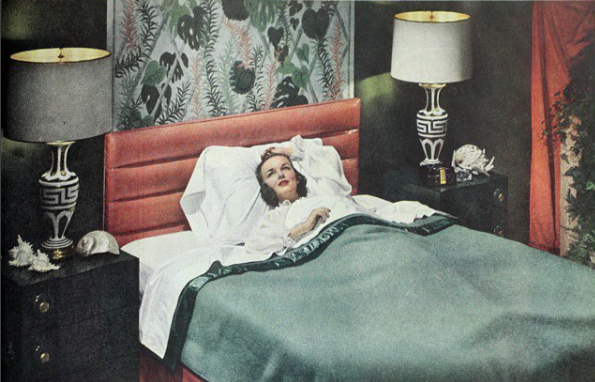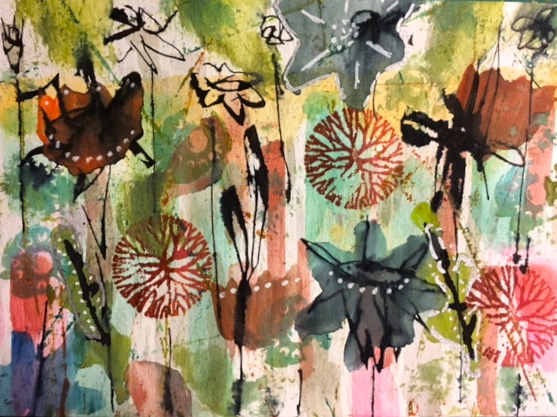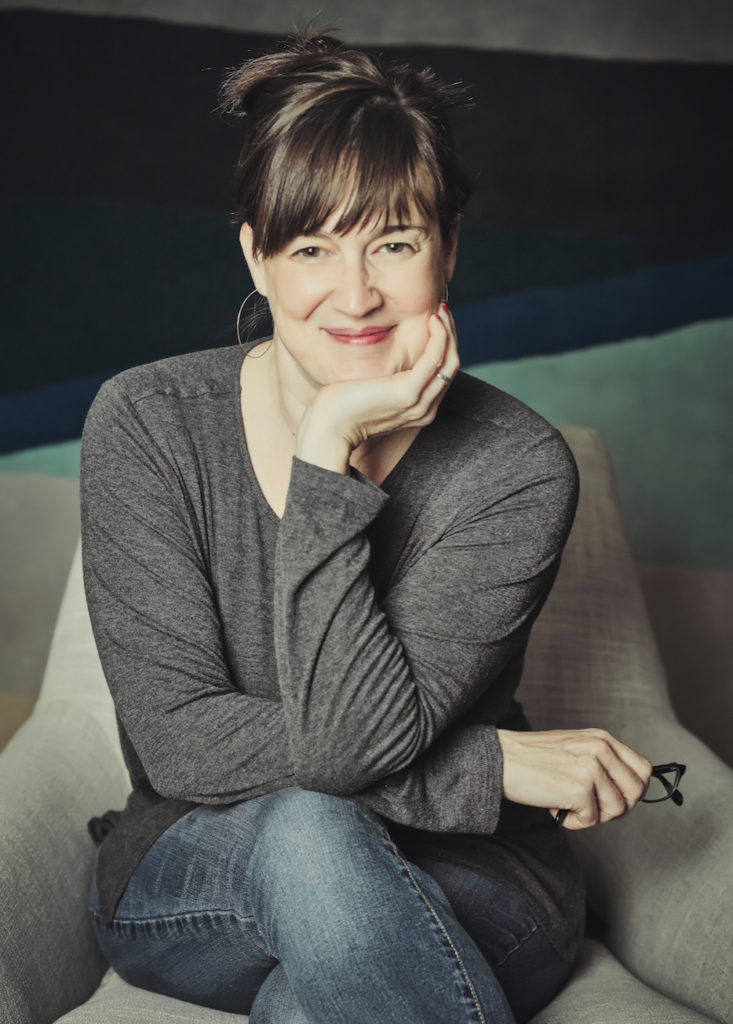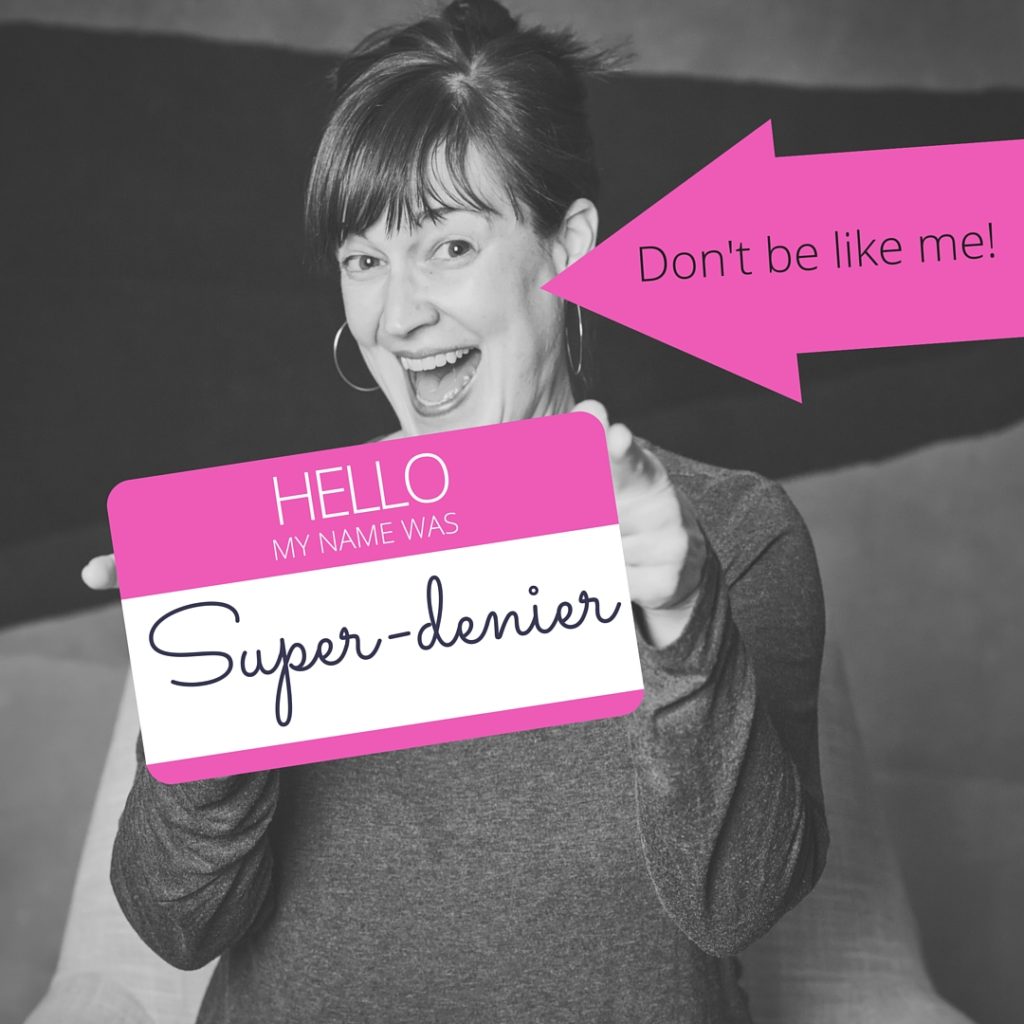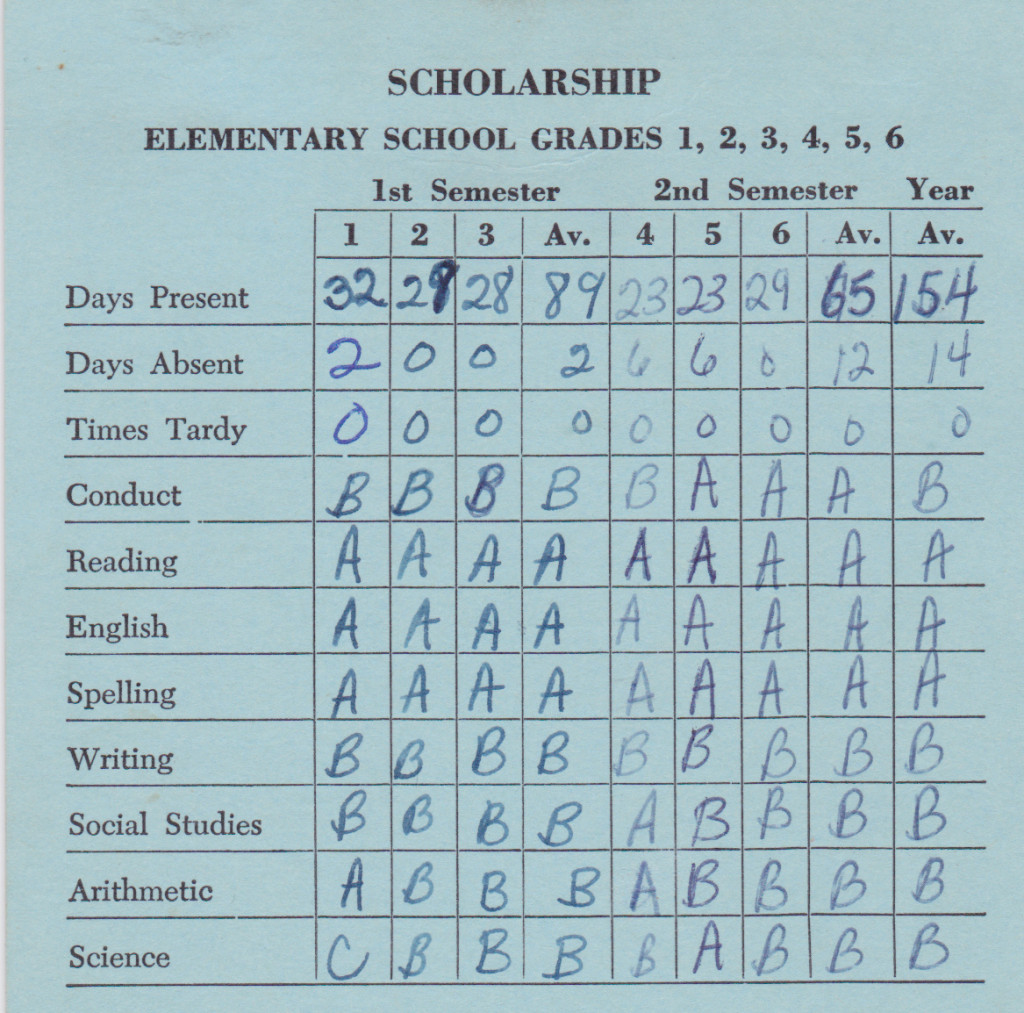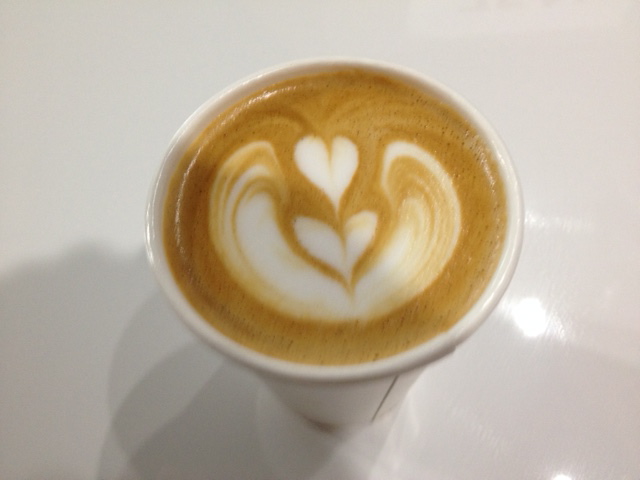
I’m so pleased to post this recent interview with April Koontz, creator of DaughtersUnite, “a place where daughters can turn for streamlined information and support from other daughters who have already walked this journey.” April’s open and honest story is one that many of us can relate to as we care for a family member, or two, or three. And I love her belief in the collective wisdom and knowledge that we can share to support and encourage each other. I also want to thank April for the beautiful illustration she designed especially for this piece. It’s a true reflection of warmth and spirit.
_________________
You’ve mentioned before that identifying as a caregiver came as a surprise to you. What were the circumstances when you first realized that you were a caregiver? I was the primary caregiver for my younger brother who suffered from severe bipolar disorder and polysubstance addiction for over 15 years prior to his sudden unintentional overdose in 2010. During his illness I never once identified as his “primary caregiver”. The term was never brought up by any of his treatment providers and it’s actually not a term that is used as much in the mental health arena. All I knew at the time was that I was his sister who happened to have a Masters Degree in Social Work and knew better than anyone else in my family how to navigate the mental health system. Five years after my brother’s death, my mom’s sister (my aunt) who lived in St Louis and was the primary caregiver for her husband (my uncle) who had Alzheimer’s, fell and broke her ankle. It was Christmas Eve and my aunt and uncle had no children and were fairly isolated because of my uncle’s hoarding disorder. Subsequently, my mom and I flew from Raleigh to St Louis the day after Christmas to provide as much support as we could. When we arrived, we realized there was no way the two of them could continue to safely live in their home. Within two months, we moved them across the country which was truly the most monumental job I’ve ever had in my entire life. My aunt has a multitude of chronic medical conditions herself so establishing medical providers, transferring their Medicare and actually providing ‘hands on’ care to both of them in addition to managing the sell of their home, cars and financial accounts was indescribably stressful. It was during this time that I was exposed to the ‘primary caregiver’ label and the plethora of caregiving resources and support available. The issue then was there was so much information that I was completely overwhelmed again.
What has been the most difficult part of caregiving? What has been the most positive? The most difficult part was the all-consuming nature of it. My mind was completely hi-jacked by every aspect of two other people’s lives including their physical and emotional health needs, their legal and financial needs and their 1800 square feet of wall-to-wall ‘stuff’. For two years I was sorting through mounds of bank accounts, IRAs, credit cards, life insurance policies, subscriptions, prescriptions, utility accounts, car titles and filling out new patient forms for every new provider each one of them established treatment with – which was a total of at least eight. Oh, and the grocery shopping, rides to and from their medical appointments, coordinating their care with their specific providers, picking up their prescriptions and remembering to have them refilled, bathing them, cleaning up their incontinence episodes, figuring out why their TV wouldn’t turn on or why their Internet was down and rushing over when one of them would fall. My uncle died of a sudden heart attack three months after their move which was definitely a blessing in disguise since his Alzheimer’s was worsening – however, I was then tasked with managing all of the activities that go along with a person’s death.
The most positive part was that I knew I was supposed to be helping them. The day my aunt called to say she had fallen and broken her ankle, I felt compelled – like I was being divinely nudged – to go help them. Throughout the process I’ve learned that stepping in as a primary caregiver can often be a very sacred experience. For me, it was about the human experience of walking along side a person during their darkest hours. Even though there have been many days that I’ve questioned where I’d find the strength and perseverance to make it through the day – it’s somehow always been there. Another incredibly positive aspect has been what I’ve learned and the amazing tribe of caregivers out there who have been transformed by their own caregiving experience and want nothing more than to help others.
What would your advice be to someone who is new to this journey? Get armed with knowledge. Get real about who you are and what you value most in your day to day life. Get connected with others who have walked or are currently walking this journey. And, last, but not least, get clear on your personal boundaries. The last one is a huge one. We’re often thrown into the role of ‘caregiver’ as a result of a crisis. Our loved one falls or has a stroke or is diagnosed with cancer or dementia, etc. and we’re flooded with emotions and adrenaline that fuels our desire for action to help in any way we can. This is a great gift, but, it’s not sustainable over the long-haul. If we jump in with both feet without having established a support network ahead of time that can fill in when we need rest – we burn out very quickly. And there’s nothing worse than experiencing caregiver burnout. It’s exhausting, depressing, anxiety producing and leads to our own serious health issues.
What’s the biggest challenge facing caregivers, today? From my experience, caregiving happens in stages and there are challenges in each stage, but the biggest challenge is not being prepared. We’re not taught (at least in the U.S.) about how to embrace – much less, face the fact that if we don’t die suddenly we’ll all eventually get sick and die. As a result, we don’t take the time to think through and plan for how we’ll manage the caregiving duties we all will eventually face in our lifetime. There is no getting around it. Unless we’re complete loners who live in the wilderness or extraordinarily wealthy and can hire a personal staff of caregivers we’ll eventually end up in the caregiver role in some way, shape or form. We also don’t think about who will care for us and the demands our caregiving needs will have one those we love. I was deeply struck by a question a dear friend of mine named George Fuller, the founder of Silver Compassion asked me: “Who in your life will change your diapers?”. That’s a profound question and speaks to the need to think ahead and actually have these types of conversations with our core people in our lives. If you don’t want a loved one changing your diapers then you better save enough money to ensure that doesn’t happen. The reality is most of us won’t be able to financially afford 24/7 professional care and someone we know and love will fill this role. Who will that be for you? Whose diapers will you agree to change?
What made you want to create Daughters Unite? What’s your vision for Daughters Unite moving forward? In June 2015, I was sitting in a continuing education seminar about elder law. At one point, the attorney who was facilitating the seminar starting talking about the fact that it’s typically the daughter who ends up in the primary caregiver role for the family. On average, the daughter is 49 years old, employed, married and, according to one Metlife study, experiences a negative inheritance of $324,000 due to giving up promotions, moving to part-time hours or leaving the workforce altogether. I was completely stunned. I had managed my brother’s care, moved my aunt and uncle across country and have aging parents who I’m certain will need my help at some point down the road. It was at that point that I decided I needed to somehow pull my fellow daughters together. Since launching Daughters Unite, I’ve now realized three very important things: 1) Daughters don’t recognize themselves as caregivers until well into the caregiving process; 2) Since they don’t initially know they’re a caregiver – they miss the tons of information and support that’s available for them as “caregivers” when they need it most; and, 3) There are way more Millennial Daughters in the role of caregiver than we knew existed. That being said, I’ve had the privilege of meeting several amazing daughters turned caregivers turned entrepreneurs who have written books about their caregiving experience, developed training programs for caregivers and/or offer caregiving coaching services. The ultimate vision is to build the Daughter Dream Team and introduce the products, programs and services these experienced Daughters have created to the Daughters who have yet to realize they either are or will be a caregiver.
It’s easy to lose our other selves when we’re caregiving. Share something about you that is unrelated to the caregiving role. I’d say my greatest passion in life is music. Beginning in my teenage years, throughout every decade so far – I’ve been singing in rock bands and writing songs. I’m actually in the studio right now working on a collection of songs that have really been my saving grace as I’ve worked through my grief over the sudden deaths of my 34 year old brother and 53 year old cousin who was a close friend of mine. I’m thrilled with how these songs are turning out from a production standpoint and can’t wait to launch the album.
Artists aren’t the only ones with creative gifts. For some it’s painting, or music. For others its making people feel comfortable or cared for. What’s your gift? I believe one of my gifts that I’ve noticed as I’ve gotten older is my ability to show up for people in their darkest hour and actually ‘stay’ with them in their sadness and grief. I’m comfortable walking with others through the sudden hospitalization or death of a loved one and helping oversee the detailed arrangements or other logistics that are needed. The ability to do this is actually an incredible gift to me.
April can be reached via:
FB: https://www.facebook.com/daughtertribe/
Twitter: https://twitter.com/DaughtersUnite
Instagram: https://www.instagram.com/daughters_unite/
Website: https://daughtersunite.com/
